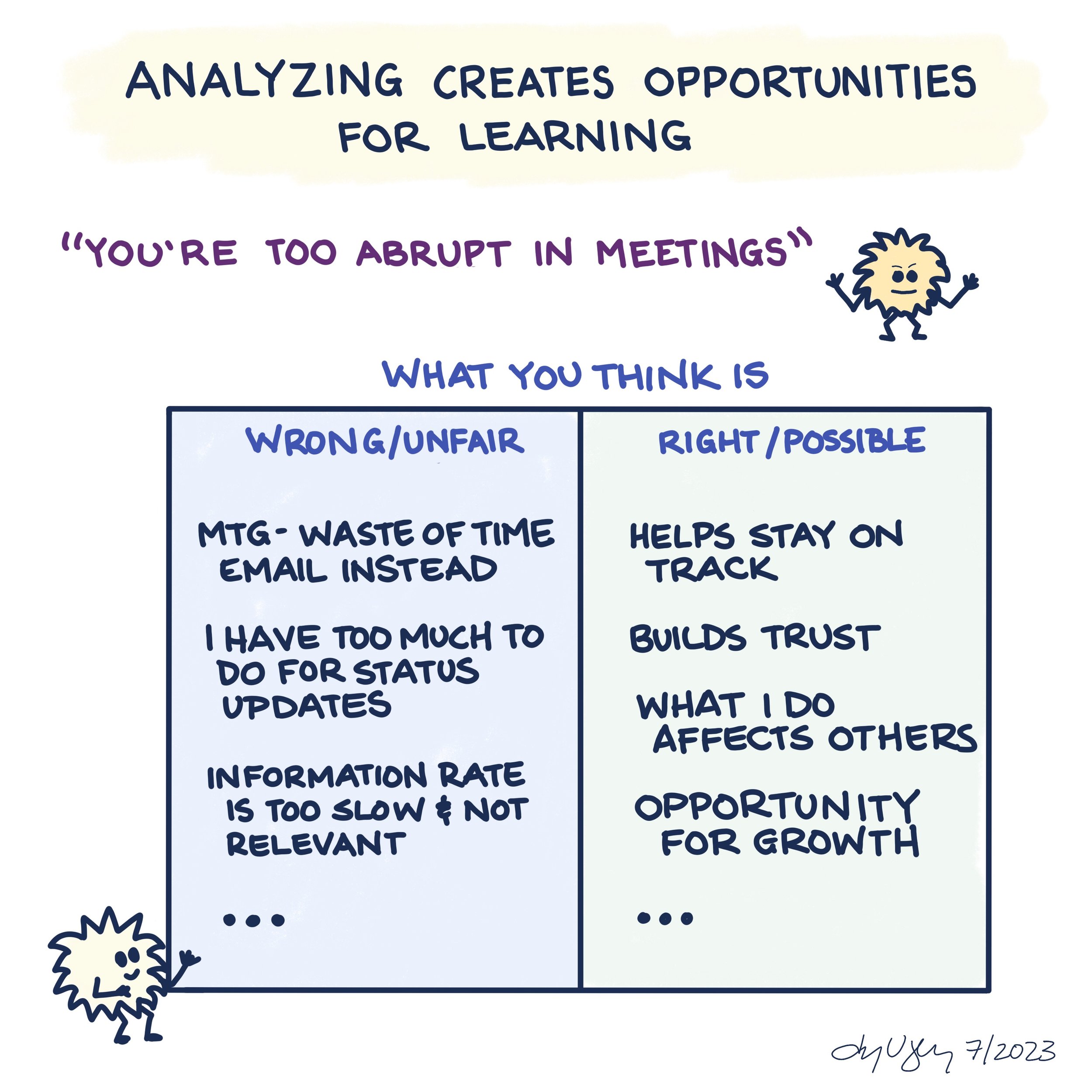Analyze the Feedback you Receive
I love the idea that most people do not have amazing mentors in every job. In Douglas Stone and Sheila Heen’s book, Thanks for the Feedback: The Science and Art of Receiving Feedback Well they discuss charting your feedback to help figure out what you need to hear.
Start by making a list of everything you think is wrong or unfair about what you are hearing. For example, if you hear, “You’re too abrupt in meetings” you might start to think about all the work you have to do and how much you wish the meetings were different. If you are feeling overwhelmed, you might think the content would be more useful as an email. Or that the information rate is too slow and you have too much to do to spend time sitting with everyone reading the text off of a status update slide. I know I have felt this way in the past.
Making a list of everything that is wrong or unfair can help create space to hear what the other person is trying to tell you. You might begin to think about how the meetings help everyone stay on track and how it builds trust within the team. You still might find parts of meetings not as useful to you, and you might start to see how they might be useful to others.
As you continue to unpack the feedback, you might consider how what you do affects others and how the meetings are an opportunity to keep a project moving in the right direction. Sometimes we think we are acting in a way that makes our intentions clear but others are finding the impact to be different. It’s often helpful to map out our intentions and use feedback as a way to confirm the impact.
I find that allowing myself to first think about what’s wrong with feedback allows me to then be more open to thinking about what is being said so I can find opportunities for growth. You can also make bad feedback into a game to see how much you can learn from it.
Keep in mind that in most cases, it’s better to thank the person giving the feedback and then analyze it later.

